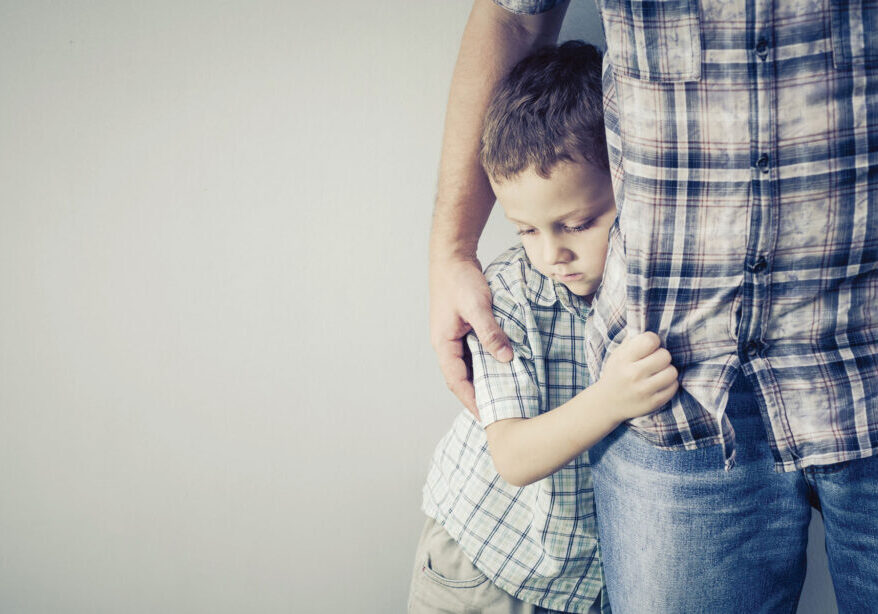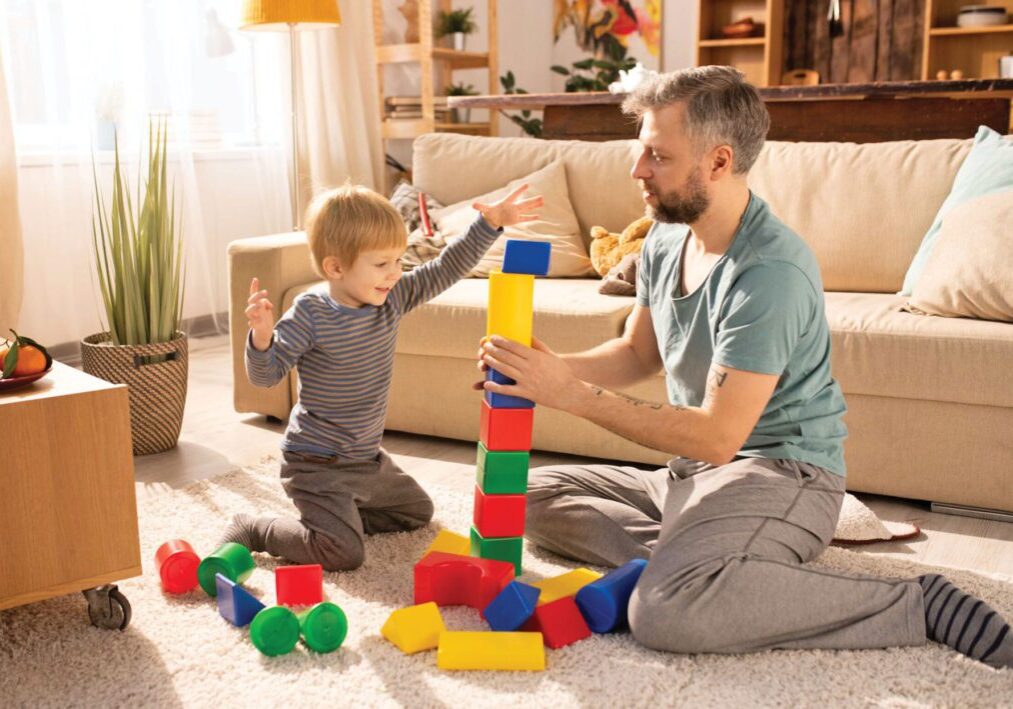My daughter’s middle school years were full of friendship drama and it seemed like her friend groups changed every week. When it was time for high school, I worried she’d be the only lonely kid in the high school crowd.

Social worker and certified parent coach Maria Sanders says learning who your friends are is a normal stage in teenage social development and we shouldn’t worry too much if our children go through middle and the early years of high school still searching for friends. It might take some time, but “by the time teens are in 10th or 11th grade,” according to Sanders, “Everyone is feeling a lot more grounded in who they are and where they belong.”
My daughter found her core group of friends in her senior year of high school and now I don’t worry as much about her feeling lonely as I did before. Instead, I have a whole new set of concerns about teens and friends.
Is my teenager spending too much time with her friends and not enough time with family? What is she doing with these friends? Are they driving safely? Are they going to parties? Will someone try to tempt her with alcohol or drugs? Will her friends pressure her into doing something she’ll regret later? Have I taught her well enough how to say no?
Here’s what experts say about high school friendships and helping your teenager navigate peer pressure, plus a tip for how you can calm your own fears.
Our teens will probably settle into a friend group in high school
Remember all that drama that started in seventh grade? Sanders says in about three years, as our children mature and become more independent from us and more comfortable with separation, all that friendship drama will calm down and our children will want to spend more time with their peer group. By this developmental stage, some of them have their driver’s license, which means more mobility and freedom to meet up with teen friends and navigate relationships on their own.
Teens may feel peer pressure to engage in risky behaviors
Peer pressure, and the desire to fit in, can nudge our teens to act in ways that they might not choose on their own, including drug and alcohol use. Sanders says some studies suggest “when teens are with their peers, they are much more likely to engage in risky behavior than when they are alone.”
Sanders says that it’s important to remember that teenage brains are still developing. Teens lack self-control and engage in risky behaviors and they still tend to act on impulse, just like when they were tweens.
Provide our older teens with parental advice, understanding and support
Even as our teenagers become more independent from us in a variety of ways, experts agree that they still look to us as parents to help them navigate relationships around them. Here are some ways you can help them (and yourself).
- Set boundaries and expectations for your teen.
- Discuss possible unsafe situations and how to avoid them.
- Remind your teen (and yourself) that it’s OK to ask for help.
“The most crucial role for a parent of a teenager is to be a safe and supportive presence who listens and truly hears their teen,” advises Siskiyou County marriage and family therapist, Dr. Michael Pautz, PsyD, LMFT. “While it’s natural for parents to want to guide and instruct, the teenage years are about recognizing that they have the capability to handle things on their own. It’s about instilling confidence in them to trust their inner voice, take risks, practice and improve each day. Teens often feel discouraged when things don’t go as planned. Instead of saying ‘I told you so,’ parents can encourage them to learn from the experience and take new actions based on the lessons learned.”
Communicate your boundaries and expectations
Is it OK for your teen to come home past midnight? Can they sleep at a friend’s house in the middle of the week? Are they allowed to drive into the city to pick up that new friend they met online? According to Sanders, it’s important that parents clearly articulate boundaries and expectations to their teens because that helps them navigate unsafe situations.
Caroline Maguire, a family coach and the author of Why Will No One Play with Me? says teens rarely respond well to parents laying out a list of rules to follow, disciplining them or lecturing them about how they should (or should not) behave or spend their time with friends. She says teens respond better to a more constructive and cooperative approach.
“Teenagers thrive in an environment where they feel heard and supported,” says Dr. Pautz. “What this means for the adults in their life is to listen, listen and truly listen to what the teen is saying and find opportunities to support their decisions and use mistakes as teaching opportunities.” Dr. Pautz reminds us that “teens are individuals. Treat them with love and respect, always, but especially when they are least likable.”
Brainstorm solutions for unsafe situations
Spending more unsupervised time with their peers increases the likelihood that our teens will confront risky situations, like being offered drugs or alcohol. At this stage, Sanders and Maguire agree, it’s important to run through risky scenarios with our teenagers.
- Help your teen recognize risky behavior.
- Discuss ways to avoid risky situations and activities they’re not ready for.
- Help them brainstorm ways to stop their own risky behavior.
- Ask them how they might stop someone else from taking unnecessary risks.
- Provide ways for them to escape without negative social consequences.
As Sanders reminds us, “Some kids know that it’s not in their best interest to take drugs, but they don’t know how to get out of those situations.” By discussing possible situations ahead of time, you help your child feel more confident in knowing how to respond.
Sanders suggests saying something like this to your teen: “Some kids your age are smoking pot and you may have opportunities to smoke it. Here’s where I stand: it’s not something I’m OK with.”
One way for our teens to get out of a situation that they don’t want to be in is to encourage them to use a code word (or a certain emoji) with you. Sanders suggests telling them: “You can send me a text with a code word that lets me know you want my help in getting out of the situation.” Maguire agrees with this approach, adding that when they text you the safe word, “you will come pick them up with no questions asked.”
“The more you can become your child’s guide, helping them to look at those peer relationships and understand their choices, the better prepared they will be to handle risky situations on their own,” Maguire says.
Be curious about why you feel anxious about your teen growing up
Some parents use tracking devices on their teen’s phone or car to add a measure of security as their teens become more independent and spend time away from home. But Sanders cautions that if you’re a parent who is very concerned about your teen’s safety and whereabouts and you’re using those devices to track them, it’s important to have a conversation with your teen about that.
Here are some questions you can ask yourself if you’re feeling anxious about your teen’s growing independence:
- Why am I so concerned?
- What needs to change so I don’t feel so anxious?
- Are we, as parents and child, communicating?
- Would more communication help?
- Do I need to let go a little?
- What would happen if I let go a little?
Sanders says that figuring out the origin of your anxiety can help you take the next steps to decrease it. You’re providing your teen with tools they can use to handle stressful situations and make good choices. Trust that your efforts will pay off.
You’re not alone worrying about your teenager
When our children were younger, it was fairly easy to find support among other parents at playgroups and classes. But now that our kids are older and more independent, it may be more challenging to find other parents for advice and support.
You might not even know the parents of your teen’s friends. Or maybe you know them, but you’re worried that if you reveal your struggles, they’ll think your kid is bad or judge you for poor parenting. You could also fall into a pit of comparison if you gather your courage to be vulnerable with someone and they respond with no empathy or worse, they tell you everything is perfect in their house.
Even though it’s a risk to be vulnerable, Sanders says it’s still worth the effort to reach out to other parents. “As a parent, having our own community of other parents can be really helpful, because what you’ll find, for the most part, is that you’re not alone in your worries and in your concerns and they’re all totally legitimate.”
Posted in: Parenting, Youth & Teen
Comment Policy: All viewpoints are welcome, but comments should remain relevant. Personal attacks, profanity, and aggressive behavior are not allowed. No spam, advertising, or promoting of products/services. Please, only use your real name and limit the amount of links submitted in your comment.
You Might Also Like...

How to Support Your Quiet, “Shy” Child
We parents want our children to thrive. And it can hurt when we see a quieter child overlooked, not chosen or otherwise left out in fun, social settings. We want […]
Foster Care & Adoption
There are disadvantaged children and youth in our Upper California community that need the help of loving and supportive families. Thousands of children in the state are waiting for adoptive […]

“Why Doesn’t My Teen Want to Spend Time With Me Anymore?” – Tips For Parents From One Teen
Watering it down to a simple answer to that question doesn’t help parents communicate or improve their relationship with their child. It’s not about the parent and how they’ve suddenly […]

From One Dad to Another: The Power of Showing Up
A few weeks after my son was born in December 2021, I sat in the darkness, gently rocking him to sleep. His tiny fingers wrapped around mine and I felt the […]



